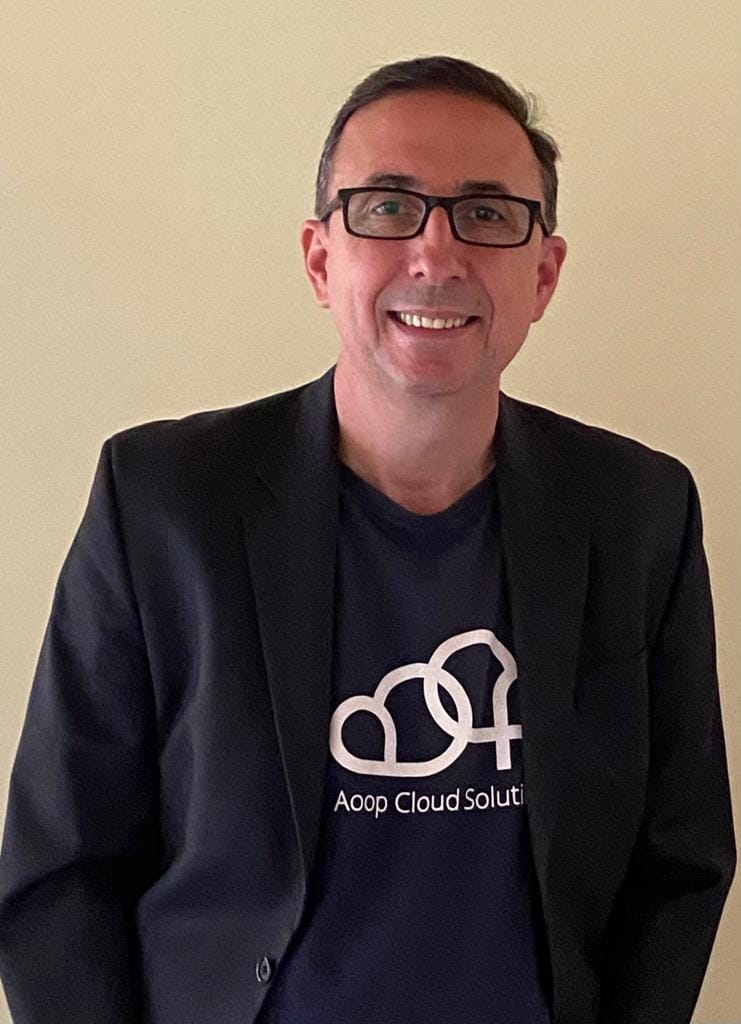Complexity Meets Skill Shortage in Brazil


E3: Mr. Baptistella, what were the main reasons for Aoop's decision to partner with NTT Data?
Luiz Cesar Baptistella, Aoop: We are a young company with accelerated growth in Brazil. Specializing in the entire ServiceNow solution portfolio, we have become the market leader in Brazil in just a few years. We have implemented over 2500 projects and support more than 200 customers. We were looking for an international, well-established partner, a complementary and robust portfolio and a culture focused on valuing people and customers. We found this with NTT Data Business Solutions.
E3: How does the partnership fit in with your long-term strategic goals?
Luiz Cesar Baptistella, Aoop: We see the opportunity to become a center of excellence in Brazil from which we can serve other regions of the world with ServiceNow services and professionals. We see many opportunities for the development of joint solutions to fulfill existing requirements and needs of SAP and ServiceNow customers, in addition to other technologies from the portfolio of NTT and its subsidiaries.

E3: What trends do you see in the Brazilian IT market, and how has it evolved over recent years?
Luiz Cesar Baptistella, Aoop:The Brazilian IT market is experiencing significant growth, driven by several key trends such as cloud adoption, which is rising as businesses seek scalability and flexibility. Another trend are digital transformation initiatives, which focus on automating processes and enhancing customer experiences through AI capabilities and customization. Cybersecurity has become a top priority, with organizations striving to protect against increasing threats and comply with regulations like the LGPD. There is also a strong demand for technology professionals, especially for emerging markets such as AI, analytics, and cybersecurity.
E3: What are some unique challenges and opportunities in Brazil compared to other regions?
Luiz Cesar Baptistella, Aoop: Brazil's IT sector faces challenges such as infrastructure limitations, regulatory complexity, high taxation, and a shortage of skilled workforce. However, it also offers opportunities, including a large market size. Brazil is the largest economy in Latin America and offers a vast market with a large and diverse consumer base, presenting opportunities for IT companies to tap into various sectors including emergent technologies.
E3: Can you share insights into the introduction of ServiceNow in Brazil? Are there any industry-specific factors influencing its implementation?
Luiz Cesar Baptistella, Aoop: The adoption of ServiceNow in Brazil is mature and growing rapidly in several industry sectors, highlighting finance, telecommunications, education, healthcare, and industry in general. Recently we have seen strong growth in the government area.
E3: How would you describe the current state of digital transformation in Brazil, particularly among mid-sized and large enterprises?
Luiz Cesar Baptistella, Aoop: ServiceNow's adoption journey in Brazil began with automation and service governance solutions for the IT area, such as ITSM, ITOM and SPM, evolving into business areas, with automation of shared services and specialized automation flows for customers and employees and recently we see strong demand for Security Operations and GRC. For mature and massive user customers, we see a strong tendency to use Analytics and Gen AI resources, as well as strategies for creating Citizen Developer structures, promoting Shadow IT initiatives through the use of the platform's low code resources.
E3: How does Aoop support companies in navigating ServiceNow’s customization to meet local requirements?
Luiz Cesar Baptistella, Aoop: To serve the Brazilian and Latin American markets, Aoop uses its own methodology to implement ServiceNow solutions, this methodology called “Aoop Lean Services” and is a derivation of the official ServiceNow methodology. This adaptation to the local market was our biggest differentiator in aligning global best practices with the local and particular needs and requirements of Brazilian companies. Despite this, we have a strong consultancy and advisory area specialized in the entire portfolio of solutions, so despite the strong demand for local customizations, we always seek to use the best existing practices offered with the minimum necessary changes.
E3: What common challenges do you see when implementing ServiceNow for Brazilian customers?
Luiz Cesar Baptistella, Aoop: Due to the high regulations and complexities that exist in the Brazilian market for various business sectors, we have always had many customizations and adaptations in our implementations. Each project has its particularities, making it difficult to quickly implement and adopt the best existing practices. However, more recently, we see a strong orientation towards acceptance and review of regional processes for better acceptance of existing standards and best practices. This is exactly what we see in other markets, where customers avoid many customizations in solutions and accept existing best practices very well, facilitating implementations.Recently we have seen many national success stories being shared with the world. We have great early adopter clients in our region who are helping accelerate the process of adopting new technologies.
E3: How important are SAP and Oracle solutions in Brazil?
Luiz Cesar Baptistella, Aoop: SAP and Oracle have a significant foothold in Brazilian companies. SAP is popular for its comprehensive ERP solutions across industries, such as manufacturing and retail and agriculture. In addition, SAP offers robust cloud solutions to drive innovation and growth. We see cloud technologies as a strong market for the future.
E3: What specific requirements do you see for SAP and Oracle customers in Brazil that Aoop can help address?
Luiz Cesar Baptistella, Aoop: Aoop, through our consulting and implementation portfolio of the entire ServiceNow solutions portfolio, can enhance SAP, Oracle, and any other ERP customer operations in Brazil by addressing several needs. For example, by offering robust ITSM to improve IT process management and service delivery, complementing SAP and Oracle's strengths. In addition, we offer automation and workflow optimization for industry needs. We can also enhance user experience by delivering modern, user-friendly interfaces that can improve employee and customer experiences through service portals, mobile access, and chat and Gen AI capabilities in the model of Self Services. We additionally provide specialized modules for managing incidents, problems, and changes, ensuring smooth and compliant IT operations alongside existing solutions. These enhancements boost operational efficiency and satisfaction for businesses utilizing SAP, Oracle or any other backoffice solutions.
E3: How would you describe the adoption of cloud computing in Brazil?
Luiz Cesar Baptistella, Aoop: In Brazil, cloud computing is increasingly favored over on-prem solutions due to cost efficiency, scalability, and flexibility. The Covid pandemic accelerated cloud adoption as businesses sought to support remote work and enhance collaboration. Security advancements have bolstered confidence in cloud services. Hybrid models remain popular for balancing specific requirements. In summary, we see a strong adoption of cloud solutions in Brazil and Latin America, even in more conservative markets, such as finance.
To the partner entry:







